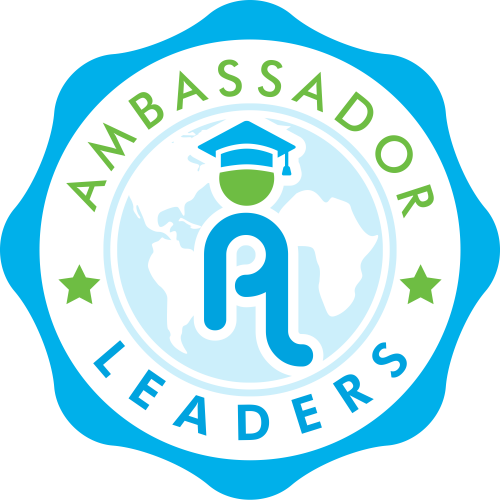LinkedIn survey reveals the top 5 most sought-after soft skills.
When you hear the term soft skill, you may get the impression that the skills in this category are easily-acquired or less crucial than hard skills, but nothing could be farther from the truth. Soft skills are the essential interpersonal skills that make or break our ability to get things done and take on new opportunities—they’re a measure of how well we work together.
At Ambassador Leaders, we have a saying: “Nobody succeeds alone.” We believe individual success is inextricably linked to how successful we are in the teams we’re a part of—our families, our neighborhoods, our jobs or schools. For that reason, we prioritize teaching soft skills at the Ambassador Leadership Summits. We know the earlier students learn these skills and the more chances they have to practice, the better off they’ll be to face the real world challenges when they go to college and start their careers.
Below are the five most sought-after soft skills according to a 2020 LinkedIn survey that aggregated data from the platform’s more than 600 million users and 20 million active job listings. While their list of the top ten hard skills shifted dramatically from 2019 to 2020, 4 of the 5 soft skills were the same year-over-year, suggesting that soft skills remain constant even in the face of an ever-evolving job landscape. While blockchain—the top-ranked hard skill of 2020—may one day be obsolete, we’re willing to bet strong interpersonal skills will always be relevant.
Creativity
More and more, businesses are seeking out people with the ability to solve problems creatively, no matter their role or title. Even in traditionally “left-brain” analytical jobs, hiring managers want candidates who can think outside the box.
At both the Leadership Summits and the Medicine and Health Care Summits, students have to work together to produce a capstone project. Whether it’s a Community Action Plan (CAP) addressing a pressing social need or a Patient Case Study diagnosing a mysterious ailment, students have to creatively problem solve to come up with a viable plan or diagnosis.
There’s a persistent misconception that creativity is innate; some people have it while others don’t. The good news is that isn’t true! Creativity is a skill that can be developed with the right practice. Read more about how to wire the brain for creativity.
Persuasion
Persuasion is all about effective communication. Often, even brilliant ideas need champions to get stakeholders fully on board. The ability to speak powerfully about a particular vision or course of action is valuable both in and out of the workplace.
Students who attend our Summits hone their powers of persuasion through the work they do in teams. Whether they are presenting in favor of the community issue most in need of their team’s attention, creating an elevator speech or negotiating the various stances on a medical ethics question, students routinely practice expressing their viewpoints and rallying their peers to the cause.
Collaboration
Even the best and brightest individual is less effective working solo than when brought together with equally high-functioning team members. Two heads, it turns out, really are better than one, and figuring out how to use your strengths to complement those of your colleagues can be a game-changer in a professional setting.
Collaboration is not only a helpful soft skill, it’s one of our foundational values as an organization. We know that every student who attends a summit is capable of leadership. While activities, workshops and keynote speakers are designed to improve individual leadership skills, they also function to take our students’ cumulative leadership to the next level by teaming them up to work together.
Through team building, team meetings and team capstone projects, students gain the tools necessary to collaborate successfully—tools like expectation setting, consensus building and effective delegation.
Adaptability
The adage goes that the only true constant in life is change. Nowhere is that more true than in business, where the ability to stay nimble can be a matter of survival. Nevertheless, people young and old struggle with the uncertainty that accompanies change.
The majority of students who attend our summits do so without knowing any of the other student participants. They join their team on arrival day as strangers to one another. Indeed, many of our students travel from their homes across the country (or even the world) on their own. This may seem like a necessary byproduct of being at the summit; after all, how can you attend without traveling to be there?
And that’s true, but it’s also a humongous step out of each student’s comfort zone and a truly courageous act. Simply by showing up, students take a wild leap of faith into the unknown. While they arrive as strangers, they leave having gained friends who feel like family, in part because they’ve all stretched themselves to be more adaptable and open to change.
Emotional Intelligence
Emotional intelligence is the ability to effectively recognize and respond to your own emotions and those of others. People with strong emotional intelligence know how to develop relationships at work and elsewhere in their lives with empathy.
This is, in my estimation, the most valuable of all the soft skills despite being at the bottom of this list. While no one activity, workshop or speaker is geared specifically to teaching students emotional intelligence, this concept underpins all that we do at the Summits. From students setting team norms for how to respectfully engage one another to learning about the backgrounds, cultures and experiences of their international peers, students are asked to be the best, most compassionate versions of themselves—to step up, to be curious, to care.
By the end of the Summit, students know that the world is bigger and more diverse than they could have imagined. They learn that their own hearts and minds must expand in kind. We believe our students’ big hearts and inquisitive minds will change the world. And that is the stunning power of soft skills.
By Corie Bales
Corie is the Academic Affairs Manager of Ambassador Leaders. As a lifelong educator and avid traveler, she believes in empowering students and teachers to learn and lead through experiential education.



